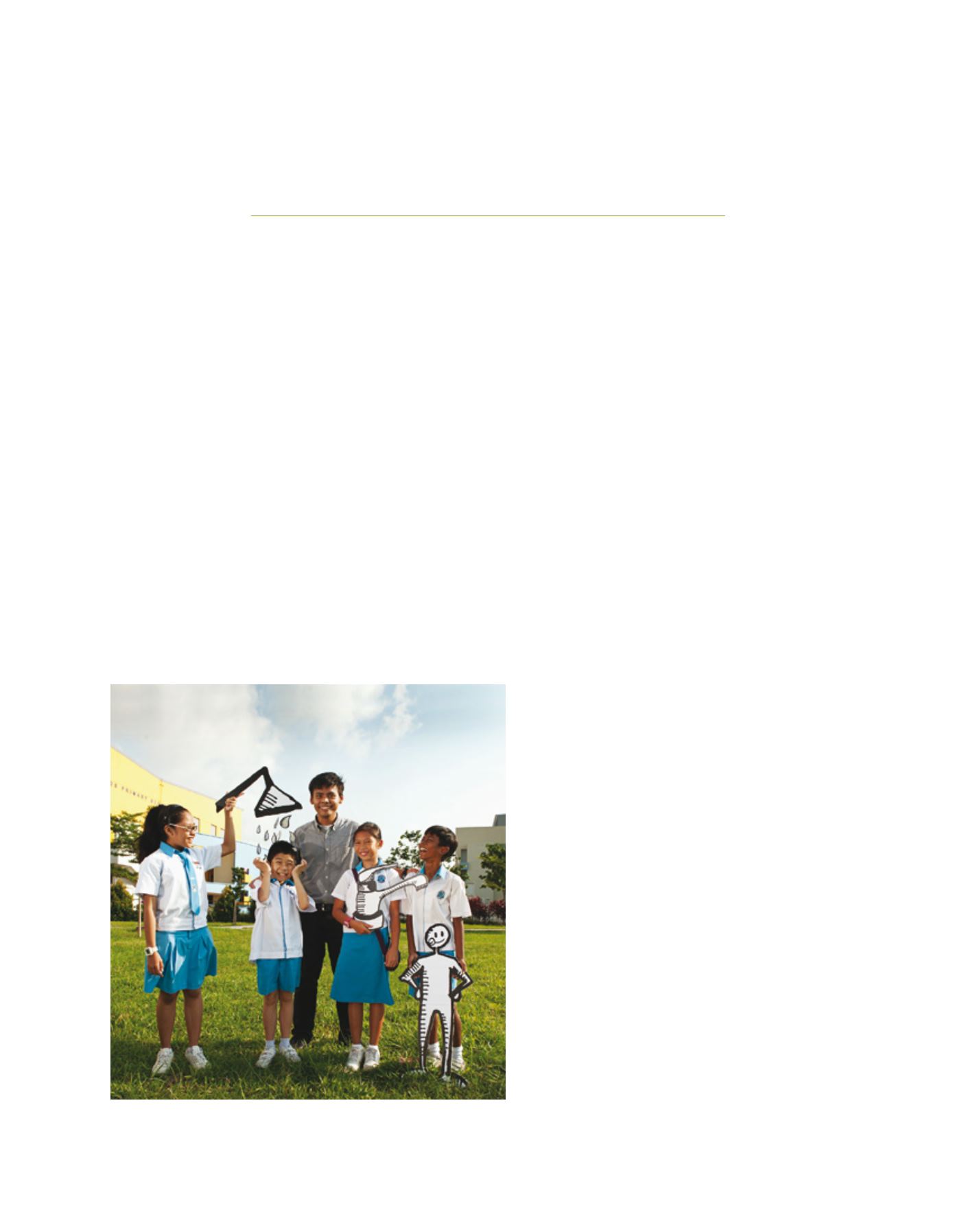

[
] 271
PUB Singapore’s efforts in
advancing water cooperation
Ms Quek Ai Choo, Deputy Director; Mr Bernard Tan, Senior Assistant Director;
Mr Yeo Sheng Wei, Senior Manager; Ms Nawwar Syahirah, Communications Executive, PUB, Singapore
T
he United Nations has declared 2013 as the International
Year of Water Cooperation. This declaration is espe-
cially pertinent because water management transcends
geographical, cultural and physical boundaries. Many countries
share a common, critical interest in water – for example the
USA and Mexico, or Singapore and Malaysia. Within a country,
it is just as important for governments to work with their
people, the private and public sectors and the global commu-
nity at large, to deliver sustainable solutions for water supply.
During his visit to Singapore in 2012 Ban Ki-Moon, Secretary General
of the United Nations, made two points on water. Firstly, on the
subject of cooperation, he said that “no single country can solve the
world’s problems by itself.” Secondly, after his visit to Singapore’s
NEWater Visitor Centre, he remarked that “such Singaporean expe-
rience and know-how (in water recycling) … should be shared by
many countries which have water scarcity problems.” The underly-
ing message is clear: it is important for the global water
community to come together, cooperate and co-create
innovative solutions to solve our water challenges.
Singapore’s achievements in water today did not come
by chance. According to the United Nations World
Water Development Report, Singapore is ranked 170
in a list of 190 countries in terms of freshwater avail-
ability. Just a few decades ago, Singapore had only two
water supply sources – imported water from Malaysia
and local catchment water. In terms of sanitation, not
all homes were sewered and high volumes of water were
unaccounted for. Today, Singapore enjoys a diversified
and robust water supply through the ‘Four National
Taps’ – local catchment water; imported water; ultra-
clean, high-grade reclaimed water known as NEWater;
and desalinated water. The water in Singapore is well
within the World Health Organization’s guidelines for
drinking-water quality and is safe to drink directly
from the tap. Singapore also has one of the lowest
unaccounted-for-water rates in the world, and it is fully
served by modern sanitation. This was achieved only
through the strong political will of its leaders, good
water governance and working closely with its partners.
As Singapore’s national water agency, PUB is respon-
sible for the management of the entire water loop, from
stormwater management to potable water supply, used
water collection and treatment, water reclamation and
seawater desalination. PUB’s water management strat-
egy can be summed up by its corporate tagline: ‘Water
for all: Conserve, Value, Enjoy’. ‘Water for all’ refers to
PUB’s supply strategy which entails integrated planning,
implementing water infrastructure ahead of demand and
effective use of new technology to bring Singaporeans a
robust and reliable water supply. However, installing the
infrastructure to supply water is only one half of the equa-
tion. As the population and economy continue to grow,
Singapore needs to ensure that the demand for water does
not rise at an unsustainable rate. Achieving a sustainable
level of water consumption and managing the impact of
water on the environment takes the commitment and
participation of the community. This is encapsulated in
the second half of the tagline – ‘Conserve, Value, Enjoy’
– which underscores PUB’s focus on water conservation
and efforts to bring the people closer to water so that they
could enjoy and cherish this precious resource.
E
conomic
D
evelopment
and
W
ater
PUB engages schools from the primary level to cultivate students as water
conservation advocates
Image: PUB


















